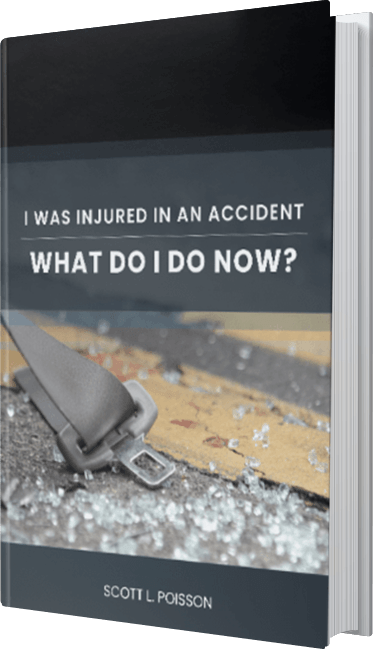Should I Go on Record for the Insurance Company After My Slip and Fall Accident?
November 22, 2022

No, you should not give a recorded statement to the insurance company after a slip and fall accident. However, it is not uncommon that after this accident, the defendant’s insurance company will contact you and ask you to give a statement. In this case, direct them to your lawyer immediately.
How Recorded Statements in a Slip and Fall Case Work
Most people do not realize how recorded statements work. Here is what happens when you give a recorded statement to the claims adjuster:
- The insurance adjuster contacts you and says that he wants to take your recorded statement. If you agree, he will start the process immediately, without giving you an opportunity to prepare or educate yourself about recorded statements. Also, you are unlikely to have a copy of all the relevant records that could refresh your memory about the details.
- The adjuster starts the recording and asks you a series of questions about the accident, your medical treatment, how you are feeling now, and other related topics. He will likely ask you whether you have ever filed a personal injury lawsuit in the past.
- Every word that the adjuster asks and that you respond will get typed up into a transcript. The insurance company does not send you a copy of the transcript.
- If there is any discrepancy between what is in the records and your answers, the adjuster might accuse you of being untruthful. At a minimum, the adjuster can “cherry-pick” your words, taking them out of context and splicing them together to mean something you did not intend.
None of these factors work in your favor.
The Recorded Statement Is Not Necessary
The insurance company’s claims adjuster will probably tell you that the recorded statement is your opportunity to tell your side of the story. The fact of the matter is that there are plenty of ways for the insurer to find out what happened the day that you got hurt. For example:
- If you filed an accident or incident report with the owner of the property where you fell, the insurer can get information from that document.
- The insurance company will get a copy of your medical records for the treatment you needed for your injuries. Those records can contain a narrative of how the accident happened in the intake history section.
- The defendant can send you written questions, called interrogatories, which will ask for detailed information, including what caused your slip and fall.
- As part of the pre-trial preparation, the insurance company can take your deposition. In a deposition, the lawyers and the person being questioned meet in a conference room. All named parties to the lawsuit are welcome to attend depositions. A court reporter will swear you in and record all of the questions the lawyers ask you, and your responses.
- Finally, the other side can get your side of the story from your attorney.
The recorded statement is an inexpensive way for the insurer to try to devalue your claim and reduce their liability exposure.
What You Need to Know About the Insurance Company Contacting You
Insurance companies are not allowed to contact you after they learn that you have an attorney representing you in your personal injury case. If the insurance company persists in emailing, sending you items by traditional mail, texting you, or telephoning you when they know that you have a lawyer, they can get into trouble with the state Insurance Commission.
Your attorney stands like a shield between you and the harassment and possibly unethical behavior of the insurance company. Sometimes a claims adjuster will go behind the lawyer’s back and try to get the injured person to fire their lawyer so that no one will be there to protect the person’s legal rights.
The Insurance Company Is Not on Your Side
Your lawyer protects you from all sorts of shady tactics the insurance company might try if you attempt to resolve your personal injury claim by yourself. Some examples of these tactics include:
- The insurer would likely make a lowball offer paying the unrepresented person pennies on the dollar of what they actually deserve.
- The adjuster might string you along during negotiations so that you missed the deadline and lose the right to ever seek compensation for your losses. You might think that the claims adjuster is going to treat you fairly because he pretends to be friendly, but that kind of thinking can only hurt you.
- The adjuster’s full-time job is to find any way to pay you less money than you deserve. As soon as the deadline to file a lawsuit expires, the adjuster will stop reaching out to you. Negotiating with the insurance company does not extend the deadline. The American Bar Association (ABA) says that after that date passes, an injured person cannot go after money damages.
Get Legal Representation with One of Our Skilled Attorneys Today
You do not have to go through this process alone. If you do not already have an attorney for your slip and fall accident injury case, you should consider hiring one. This way, you will be protected when things happen, like the insurance company asking you to give a recorded statement.
High Stakes Injury Law can safeguard your legal right to fair compensation when you get hurt because of someone else’s negligence. Call us today for a free initial consultation.
Get A 100% Free Case Evaluation
From A Top-Rated Personal Injury Attorney
Call: (702) 707-5934 or Contact Us Online
$9M
Settlement / Auto Accident
$5.1M
Settlement / Tire Explosion
$3M
Settlement / Truck Accident
01
02
03
04

I Was Injured In An Accident.
What Do I Do Now?
By Scott L. Poisson

Do I Have A Case?

Dealing With The Insurance Company

When a Lawsuit Is Filed

Overcoming Common Defense Themes

Special Considerations in Specific Types of Cases
